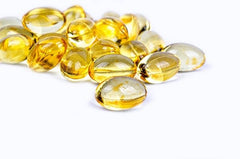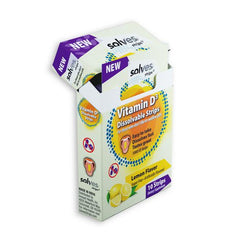With the sun hibernating and the temperature dropping, there is no denying that winter is finally on its way. This is the time of the year, when days get shorter with less exposure to sunlight and nights get darker. During this season, your body needs help to avoid stress and strain on the immune system.
A healthy diet in winter is like an internal layering of your body to protect against cold and diseases. There are certain vitamins and nutrients that you should include in your diet to prepare your body to overcome harsh weather. Increase the intake of nutritious food items like nuts, dry fruits, root vegetables, and oilseeds that keeps you warm during cold weather.
Vitamins

Vitamin D, C, A, E, and vitamin B12 are essential to regulate the immune system and prevent your skin from dryness. These winter vitamins also boost up your mood swings.
Here, we have mentioned some essential vitamins that you must consume during winters.
Vitamin D
The deficiency of vitamin D is not uncommon. Our body makes vitamin D (cholecalciferol) when exposed to sunlight. During the winter season, the level of vitamin D may be depleted in the body. We need vitamin D to absorb calcium in the bones. Its deficiency is associated with sleep problems, depression, joint pain, poor immunity, and can cause Seasonal Affective Disorder (SAD).
It is very challenging for the body to fulfill the deficiency of vitamin D during the cold weather months. To overcome this loss, you should seek out food rich in vitamin D to match your deficit. These food sources include egg yolk, oily fish (e.g., salmon, tuna, mackerel, and cod), beef liver, fortified milk, cereals, avocado, and mushrooms. We can also overcome this deficiency by taking vitamin D supplements - Solves Strips Vitamin D Strip contains 1000 IU (125% of daily value) of vitamin D to ease the symptoms and boost up your energy level.
Vitamin D helps to regulate the immune system, promotes cell development, absorb all the essential nutrients, and improves life functions by preventing various diseases.
Vitamin C
During the cold season, the list of viral infections such as cold, flu, and sinus goes on. Vitamin C is an essential nutrient that boosts up your immune system. Your body cannot synthesis this vitamin so it must be consumed through diet. Sources of vitamin C are citrus fruits, berries, potatoes, bell pepper, broccoli, tomatoes, and leafy vegetables.
Vitamin C is crucial for protein metabolism and helps in making antibodies to protect against illness. It activates the production of collagen to build connective tissues. This water-soluble vitamin is also known as Ascorbic acid, acts as an antioxidant to protect your immune system from damage.
Omega-3

In harsh winter conditions, many people experience a seasonal affective disorder called winter blues. This seasonal depression is due to the lack of light during winter days. Hence, you should make sure the intake of omega-3 that supports your mental health. The presence of vitamin D in omega-3 tackle all your issues of limited sunlight.
Omega-3 supplements are fish oil and krill oil. To increase the intake of omega-3, you can turn to plant-based sources such as flaxseed or chia seed.
Dry fruits or Nuts

Nuts keep you awake in a prolonged period of limited sunlight when more sleep hormone melatonin is produced. This makes you lazy, tired, and unmotivated. To keep yourself active and energetic, you need the serotonin hormone which is an opponent to melatonin. All kinds of nuts such as peanuts, walnuts, hazelnuts, cashews, and sunflower seeds provide you with this valuable substrate.
The cold weather can interrupt your daily routine workout and can also lead to overreacting due to stress and mood swings. By taking a balanced and nutritious diet that keeps you warm during winter days leads to a healthy lifestyle.
- Solves Strips® Health Team
Click the Vitamin D strips below to purchase!
Like this post? Follow us on Facebook, Instagram, and Twitter to see more.
Questions or comments? We'd love to hear from you.


Comments